Jewish History: Israel
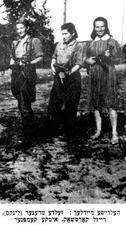
Rozka Korczak-Marla
Rozka Korczak-Marla was active in underground resistance during World War II, serving in the United Partisan Organization to smuggle weapons into the Vilna Ghetto and help Jews escape. After the war she immigrated to Palestine and settled into kibbutz life.

Gertrud Kraus
Kurdish Women
Jews lived in Kurdistan for 2,800 years, until a mass migration to Israel in the 1950s. This Jewish community’s ancient roots and relative seclusion in the Kurdistan region fostered unique religious, cultural, and linguistic characteristics. Despite assimilation and the loss of traditional practices, the community remained tight-knit.
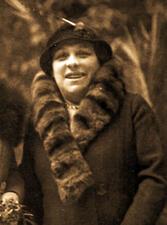
Annie Edith Landau
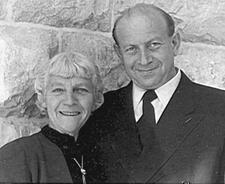
Bertha Landsman
Bertha Landsman dedicated her life to nursing, becoming one of the generation of giants who laid the foundation of the nursing profession in Palestine. She worked with Jewish, Christian, and Muslim women, persuading them to abandon folk superstition in favor of “correct knowledge and information,” and also taught nursing to local women students.
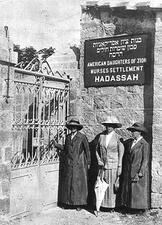
Rae D. Landy
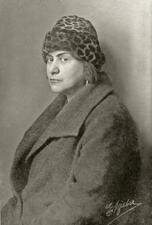
Else Lasker-Schüler
Else Lasker-Schüler was a German-Jewish poet, short story writer, novelist, and playwright. Born in Elberfeld (today part of Wuppertal, Germany) in 1869, Lasker-Schüler is best known for her dream-like, bohemian poetry.
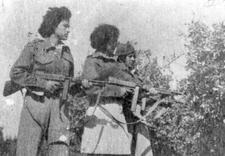
Lehi (Lohamei Herut Yisrael)
Lohamei Herut Yisrael (Lehi) was an underground Zionist extremist organization active between 1940 and 1949, during which it forcefully opposed the British Mandatory government and Palestinian Arab opponents to a Jewish state. Women participated in most areas of Lehi’s activity, from carrying out military actions to propaganda production.
Sarah Lishansky
A politically active nurse and midwife, Sarah Lishansky used her career to treat and care for workers in the Yishuv during the Second Aliyah.
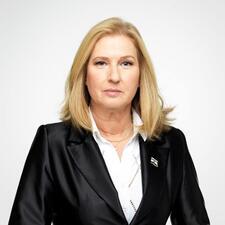
Tzipi Livni
Tzipi Livni is a politician, lawyer, and diplomat who has held the more government roles than any other woman in Israeli history. Widely respected for being judicious and resolute, Livni is most known for her long tenure in the Israeli Knesset with the Likud, Kadima, Hatunah, and Zionist Union parties, for her role as a leader in Israeli-Palestinian peace negotiations, and for her longstanding commitment to advancing international diplomacy.
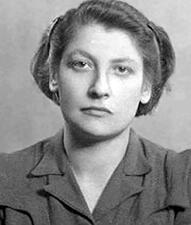
Zivia Lubetkin
Zivia Lubetkin was an important member of the underground resistance movement in Poland during World War II, and later an active member of the United Kibbutz Movement in Palestine.
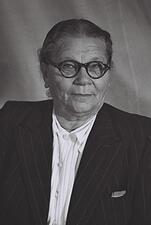
Ada Maimon (Fishman)
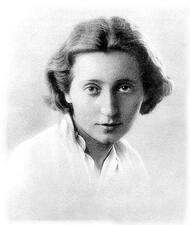
Judith Marquet-Krause
Judith Marquet-Krause was an archeologist who contributed her talents to early twentieth-century excavations of ancient cities across Palestine, most notably leading the excavation of Ai.
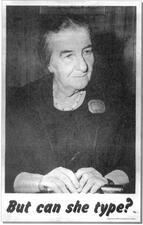
Golda Meir
A direct, no-nonsense politician who participated in Israel’s governance from its independence onward, Golda Meir served as Israel’s first female Prime Minister through the turbulent period of the Yom Kippur War.
Mizrahi Feminism in Israel
Mizrahi feminism goes beyond the typical western scope of feminism to include the history and issues that concern women in the Middle East in Israel and in Arab and Muslim countries. An intersectional feminism, it is particularly sensitive to issues of race, class division, immigration, and ethnic discrimination.
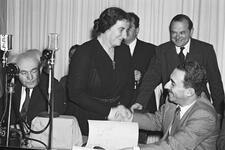
Mo'ezet Ha-Po'alot (Council of Women Workers)
The Mo’ezet Ha-Poalot was founded in 1921 as the women’s branch of the Histadrut, the General Federation of Workers in mandatory Palestine. In the name of women workers, the organization struggled for many years for equality in the eyes of the Histadrut, though it ultimately came to represent more broadly the interests of Jewish women in Palestine and Israel, including immigrants and housewives.
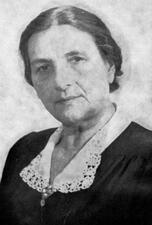
Moshavah
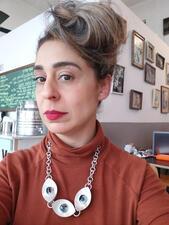
Vered Nissim
Multi-disciplinary artist, curator, and art consultant Vered Nissim was born in Israel to Iraqi immigrant parents. She identifies as a Mizrahi feminist; her art revolves around her gender, ethnic, and class identities, and she aims to give voice to marginalized women in Israeli society.
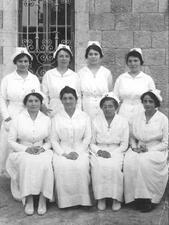
Nursing as a Female Profession in Palestine (1918-1948)
Nursing was a well-respected profession for Jewish women in Palestine, until doctors and nurses clashed about the proper level of education for nurses in the 1930s. Despite the challenges women faced in the medical field, they contributed greatly during times of war and violence before the founding of Israel.
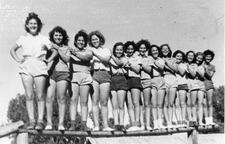
Palmah
The Palmah was the elite fighting brigades of the underground paramilitary force Haganah, active between 1941 and Israel’s founding in 1948. Women were active in the Palmah, but were they considered equal to men?
![Swiss identity card of translator, journalist, and author Juliette Pary (pen name of Juliette [Gourfinkel] Pougatch), 1944.](/sites/default/files/styles/gallery_item/public/mediaobjects/ch-bar_e4264_1985-196_10835_5_1.jpg?itok=7ZMC46d1)
Juliette Pary
Born in Odessa, Juliette Pary moved to Paris in 1925 and became a respected translator, journalist, and author. She also played important roles in summer camps, youth hostels, and the development of modern educational practices. During World War II she worked closely with child refugees.

Marilyn Paul
Peace Movement in the United States
Throughout the twentieth century, Jewish women played a major role in American peace organizations and movements. Jewish women have also been in prominent roles advocating for peace between Israel and Palestine, both in the Knesset and with private organizations.
Peace Movements in Israel
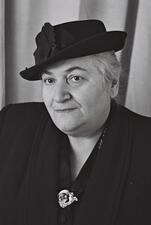
Shoshana Persitz
Born in Russia to wealthy parents, Shoshana Persitz was a passionate Zionist and a leader in education reform. She operated a Hebrew-language publishing house in Russia before making Aliyah to Israel, where she continued in publishing and served three terms in the Knesset.


